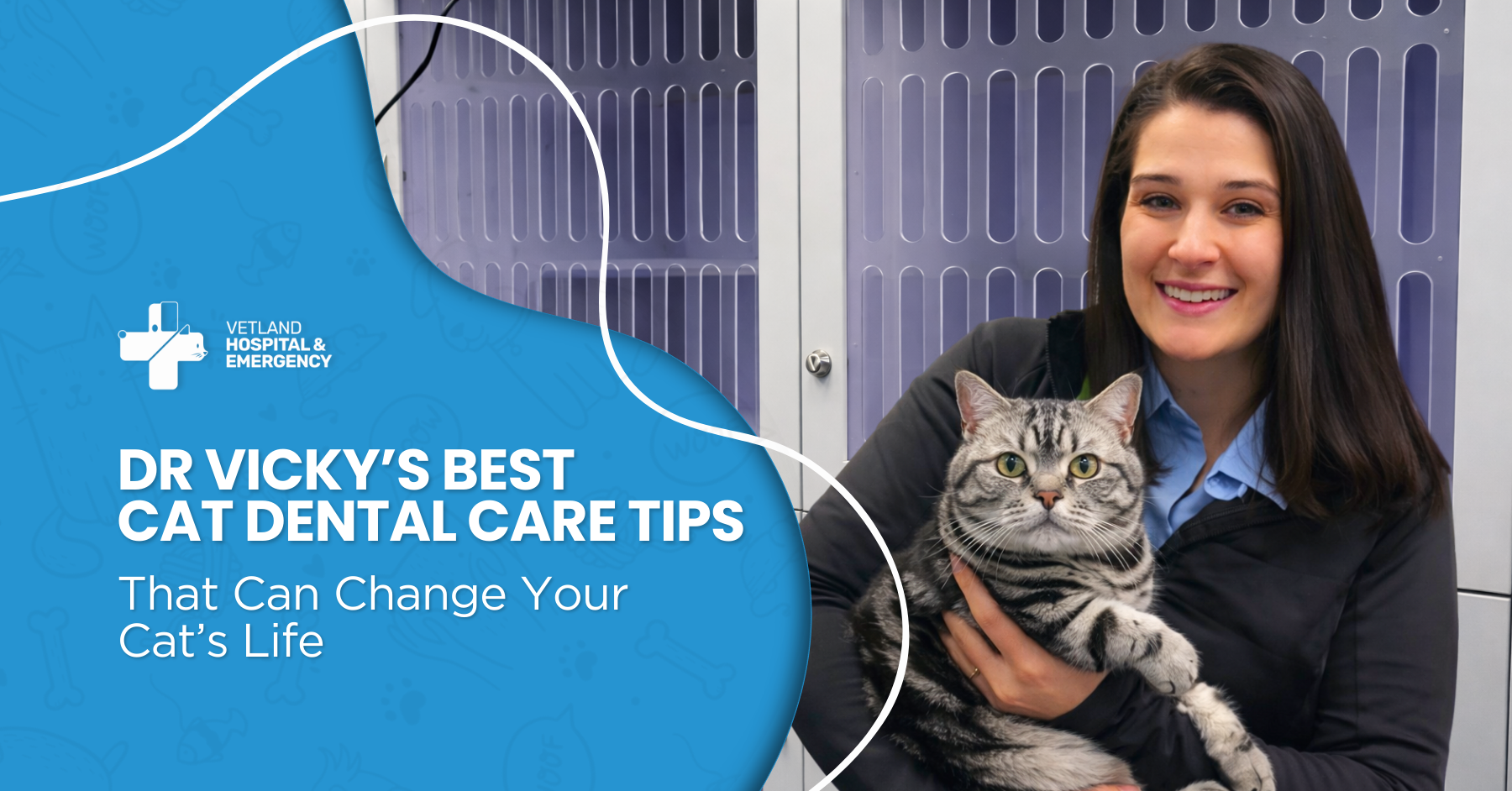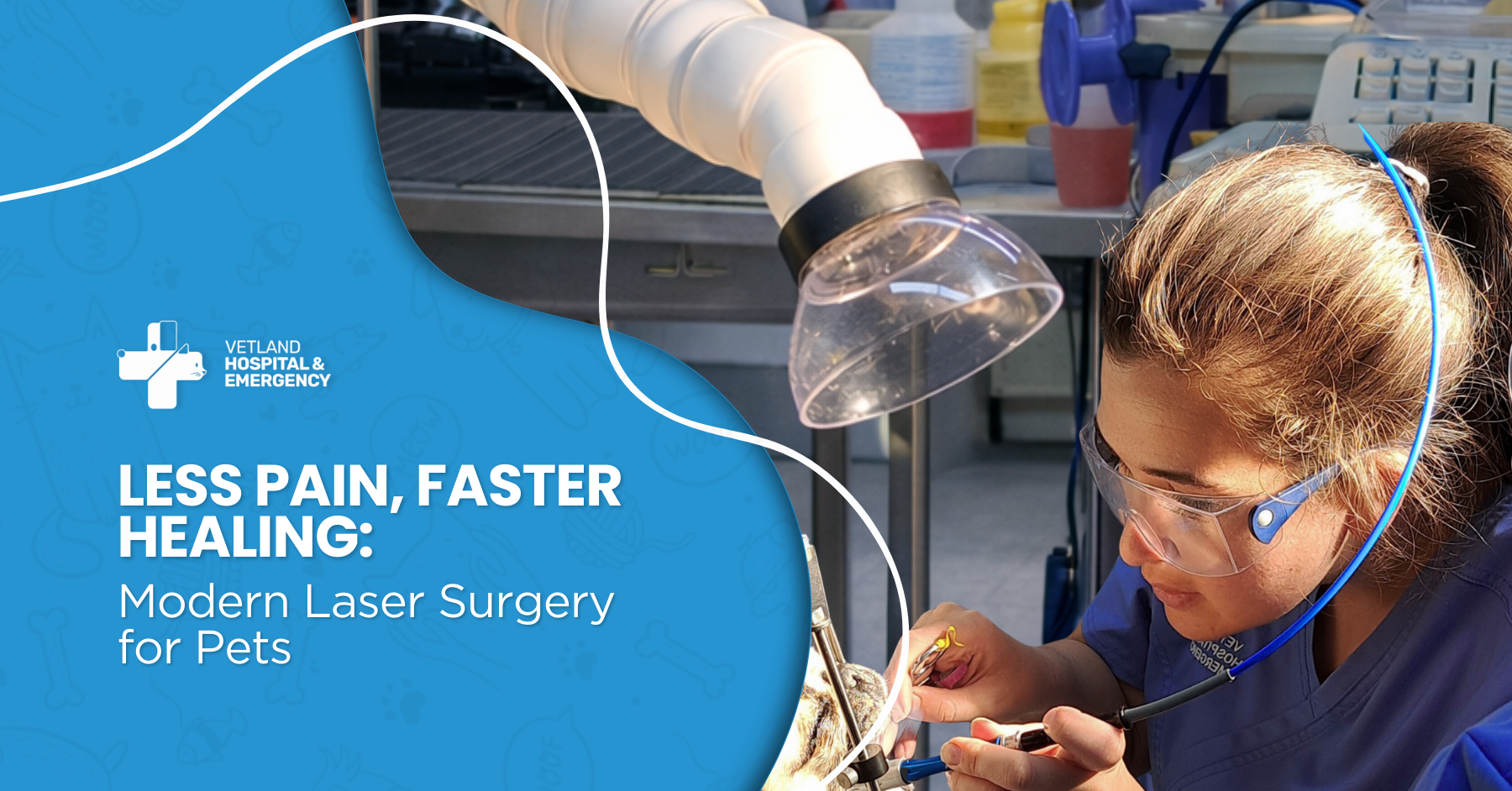Dr Vicky’s Best Cat Dental Care Tips That Can Change Your Cat’s Life
Your cat may be hiding dental pain right now, would you know it? Cat dental care matters for one reason—it hurts.There are no obvious symptoms, but...

Feline infectious peritonitis is a collection of serious illnesses caused by a virus. Until recently, it was known to be incurable, and deadly. Our veterinarians at VetLand Vet Hospital are thrilled to be providing cutting edge treatment for these patients with a disease once deemed hopeless.
Feline infectious peritonitis (or FIP) is actually contracted through infection with feline coronavirus. It is very important to be aware that this is a different coronavirus from the type which causes COVID-19 in humans. Feline coronavirus is non-transmissible to people.
In fact, feline coronavirus has been around for a long time and is reasonably common in pet cats. Your cat may have even had it without you even being aware. However, in some instances, the virus can mutate and cause the terrible symptoms associated with FIP.
Feline coronavirus is contracted through the ingestion of contaminated faeces of infected cats. Given that cats are habitual groomers, of themselves and each other, transmission of the virus in multicat households is common. Current estimates are that 80 – 100% of cats in multi-cat households are positive!
Despite this high rate of infection, most cats will only have very mild diarrhoea for a short period. And other cats will just never show any symptoms at all.
Feline coronavirus will infect the intestines of cats, at which time the virus undergoes replication. Ultimately, this form of the virus is confined to the intestinal lining. That is of course unless the virus is able to mutate into a form which allows it to spread beyond the intestines. This mutated strain is able to move out of the intestines and into the white blood cells, causing infection throughout the body.
Whether or not this mutated virus will cause disease in the affected cat depends purely on the quality of their immune system.
Symptoms of FIP are most commonly seen in young cats, under 2 years old, with the majority being kittens between the ages of 4 – 12 months.
Multicat households have high rates of transmission. Overcrowding will increase stress, which can compromise a cat’s immunity.
Finally, some cats are thought to be genetically more prone to developing the disease
FIP can cause a variety of symptoms, in varying degrees of severity, which can make diagnosis reasonably complex for this invariably fatal disease. Often early symptoms are mild in nature, including kittens feeling tired, off their food and even feverish. These vague symptoms can linger for days, to weeks, and in some cases even months.
There are two main forms of the disease. Cats can have either form, or a combination of both;
Wet FIP (Effusive FIP)
This is the more classical presentation of the disease. The virus damages blood vessels which results in fluid leaking into the abdomen or chest, or both. Patients with this form can present as having difficulty breathing, or a bloated, pot-belly appearance.
Dry FIP (Non-Effusive FIP)
This is usually a more chronic presentation of the disease. In this form, the virus causes abscess-type lumps to form through the body. Areas that are commonly affected include the eyes, brain, liver, kidneys, lungs and skin. Therefore, the range of symptoms is quite varied, from neurological distress (wobbliness) to cloudiness of the eyes and difficulty breathing.
Once any of these symptoms have become apparent it is inevitable that they will rapidly deteriorate to the point where euthanasia is the kindest option.
Because the symptoms of FIP infection can be vague and varied, it can be a difficult disease to detect, and confirming a diagnosis can be tricky.
Your veterinarian may make a presumptive diagnosis of FIP when;
Sadly, these changes are not unique to FIP, adding to the difficulty in making a diagnosis.
If there is fluid in the abdomen or thorax, your veterinarian may collect and analyse a sample. This often requires ultrasound-guidance.
There are many other tests which can be performed, however all of them have their own limitations.
Unfortunately, the best and most reliable method to achieve a diagnosis of FIP is with surgical biopsies of affected tissues. Sadly, these kittens are often too sick to undergo surgery and wait for the results of immunohistochemistry testing.
Once a death sentence, hope now exists for cats diagnosed with this awful condition. The recent availability of new antiviral Remdesivir in Australia has seen a response rate of 80 – 95% in affected cats!
Treatment can be in the form of injections, or tablets, with the dose varying depending on the patient’s symptoms. Treatment lasts for approximately 3 months, with regular testing and dedicated nursing required throughout this period.
Most patients are initially hospitalised for 3 days, then may receive the remainder of treatment on an outpatient basis.
If you’re interested to hear more from a pet’s perspective, click here to read about Meeko’s remarkable recovery.
In some parts of the world, a vaccination is available for kittens over 16 weeks old. However, as most infections are contracted prior to 16 weeks, the vaccine is thought to have limited value.
Rather, the best focus should be toward prevention.
When adopting a kitten, insist on a personal expectation of their living quarters. Cat’s should not be kept in large groups, or have multiple litters at one time. If there are numerous cats, they should be isolated into small groups (no more than 4 cats in contact).
As the virus is shed through the faeces, provide ample litter trays (minimum of two per cat), and ensure they are cleaned and disinfected daily.
Minimise all sources of stress, and maintain good preventative healthcare to bolster immunity.
Looking for more reading? Try these trusted resources
International Cat Care
https://icatcare.org/advice/feline-infectious-peritonitis-fip/
Cornell University College of Veterinary Medicine
https://www.vet.cornell.edu/departments-centers-and-institutes/cornell-feline-health-center/health-information/feline-health-topics/feline-infectious-peritonitis
Some suggested reads:

Veterinarian

Your cat may be hiding dental pain right now, would you know it? Cat dental care matters for one reason—it hurts.There are no obvious symptoms, but...

What makes someone choose a career full of uncertainty, constant learning, and never-ending challenges?

Gentle. Precise. Designed for Comfort.